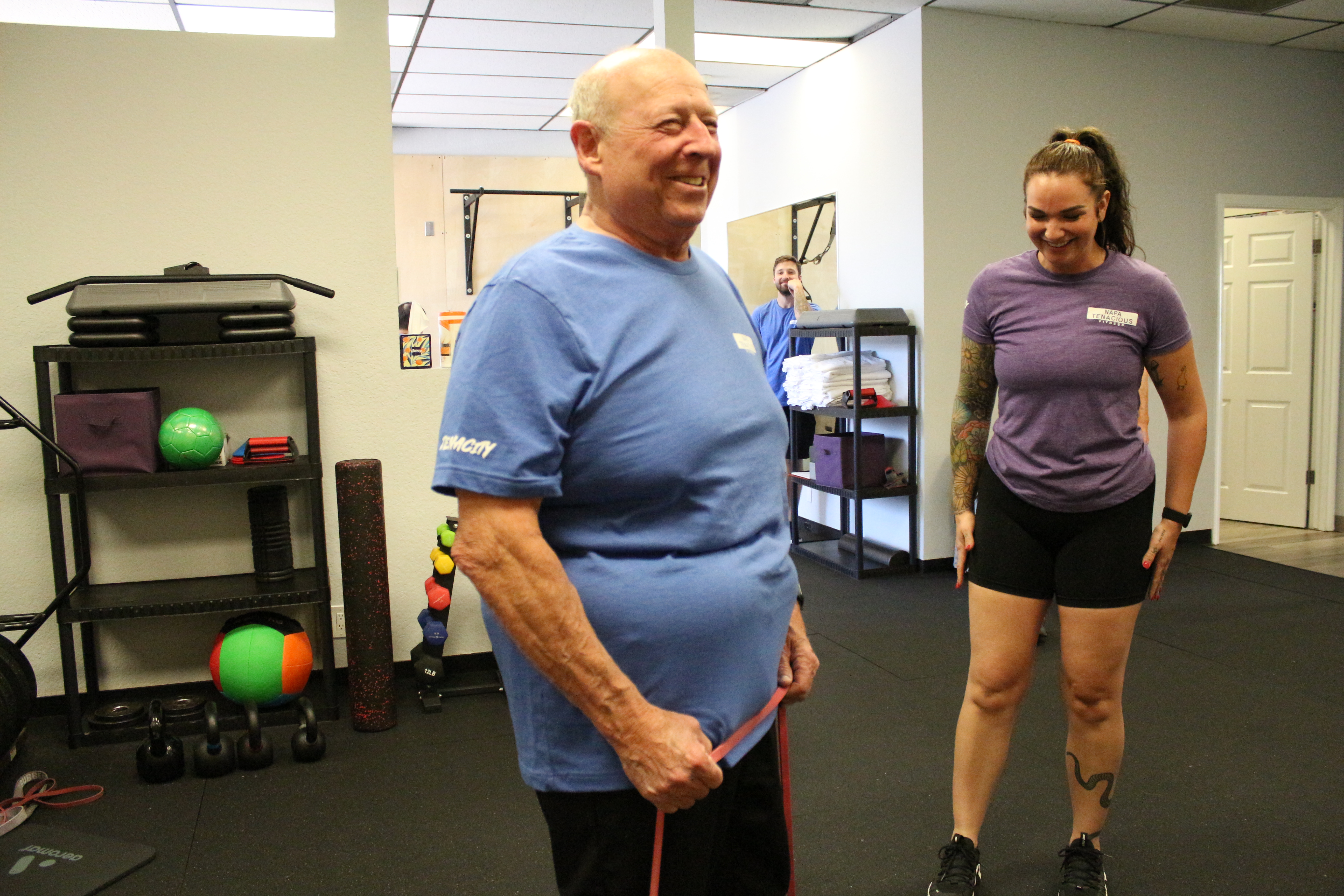Stress occurs from multiple angles throughout our everyday lives. Sometimes, forms of psychological and emotional stress can manifest as worrying about future events, irritability due to fatigue from social interactions that may have occurred at work, or a recurring thought from a past event that we can’t seem to shake. These examples of stress-related conditions are undesirable states to be in. Anxiety, fear of the unknown, or depression can potentially debilitate a person’s ability to achieve optimal experiences and interactions throughout everyday life. While presentations of stress can occur in various forms and be detrimental to a person’s health and functionality, understanding tactics to mitigate the effects of stress can be managed by practicing mindfulness, taking time away from stress-generating environments, and engaging in psychological, mental, and emotional therapy. A useful tactic that builds a buffer and assists in stress management is the gift of exercise. Consistent adherence to a form of physical activity and exercise has potently effective properties that aid in stress mitigation by acting as a “natural brain wash.” Putting the demands of life on hold and rinsing stressful thoughts away can create pathways to bring in positive and productive thoughts, emotions, and feelings.
Family, friends, and work colleagues are influenced by how a person might feel, their ability to focus, and how much they remember about meaningful interactions they have had with others. For example, a friend who is happy to see someone and enjoys meeting with friends during a weekend group hike or golf outing is a desirable and pleasurable person to be around. However, if someone shows up to a hike and can’t stop complaining about work-related events that pour a waterfall of dread and unhappiness throughout a conversation, that person may not be the most enjoyable to be around. Mood plays a significant role in enjoying and having positive social interactions.
Recurring thoughts can run rampant through the mind, akin to the rapid sprinting of a hamster’s legs as they turn their hamster exercise wheel. Memories spanning anywhere from years ago to a few hours ago, perhaps about a heated conversation with a friend, family member, or colleague, can recur like the repeat episodes of Happy Days on Nick at Nite. This situation of automated re-runs of old sitcoms isn’t much different than thinking about an argument with a friend, work colleague, or loved one that occurred a few weeks ago. Becoming stuck on past experiences can hinder a person’s ability to generate new ideas and engage fully with what is happening in front of them.
Taking time out to exercise can help manage mood, recharge creative energy, and move past mundane, repetitive thoughts. Entering one of the local gyms, attending a Yoga class, or meeting with a personal trainer once a week applies a different stimulus than everyday life activities. While being an elite performer in our careers, as well as a dependable and supportive spouse or parent, are critically important factors, taking time out for oneself to decompress shouldn’t be understated. When entering a Yoga class, our electronic devices, such as phones and wearable technology, which send us phone calls, text messages, and deliver electronic mail on iPhones or Apple Watches, are usually set to silent and can’t be viewed until after the class. This temporary disengagement from our daily obligations and demands on our commitments is a good thing. When paired with exercise, we can not only reinforce the physical architecture of our body’s connective tissue and organs, but we also have the potential to expand our bandwidth, manage stress, and become an elite performer for our family, loved ones, and careers.
Exercise not only produces positive endorphins and hormones that increase our ability to feel accomplished, happy, and energetic, but it is also tied to sharper thinking, resistance to stressful and tense environments, enhanced memory, and improved focus. Participating in a consistent exercise routine two to three times a week can create a buffer against stress, in which an overabundance of stress hormones, such as cortisol, can be mitigated to allow for an increased sense of focus and level-headed thinking.
We remind our personal training clients that the goal outcome of a productive training session is to feel better walking out of the gym than when they walked in. Similar to the refreshed feeling experienced after waking up from a restful night’s sleep, finishing an exercise session promotes increased energy and the motivation to be the best version of ourselves by operating at full capacity throughout the things we enjoy doing and supporting the people we love.
Sean McCawley, the founder and owner of Napa Tenacious Fitness in Napa, CA, welcomes questions and comments. Reach him at 707-287-2727, napatenacious@gmail.com, or visit the website napatenaciousfitness.com.

